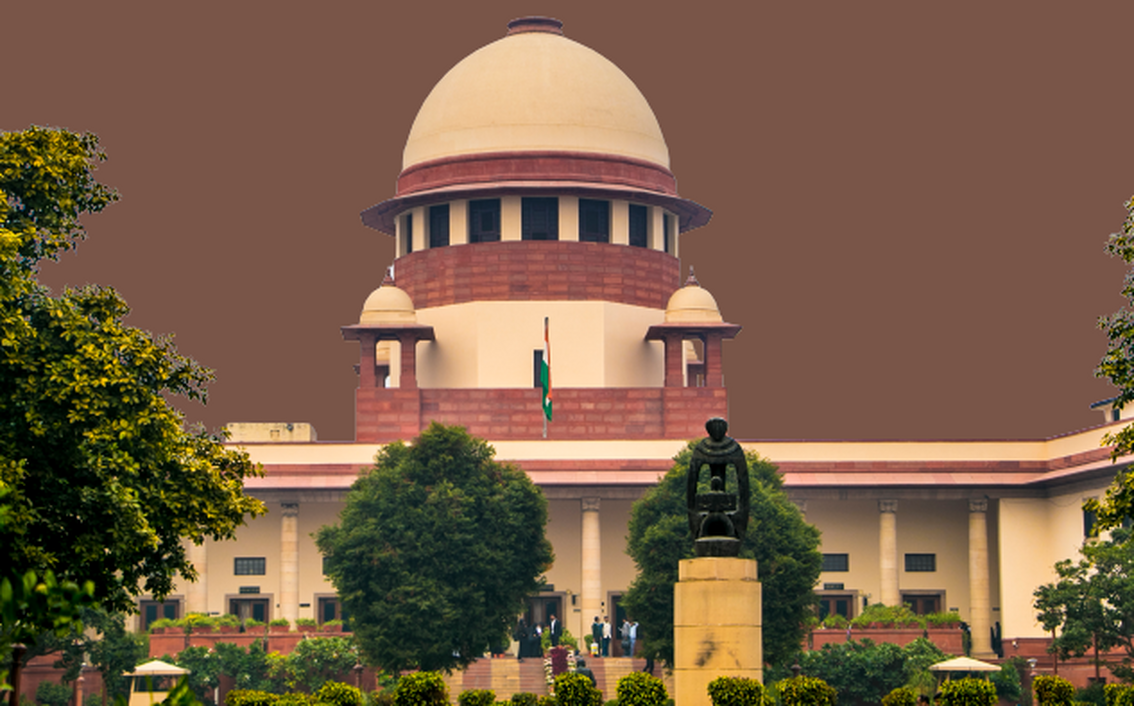In Civil Appeal No. 3887/2023 -SC- Supreme Court upholds Allahabad High Court order, directs Uttar Pradesh to pay salary & benefits to employee deprived due to State bifurcation
Justice Abhay S. Oka & Justice Pankaj Mithal [09-11-2023]

Read Order: State of U.P. & Anr. Etc V. Baleshwar Singh & Ors
LE Correspondent
New Delhi, December 5, 2023: The Supreme Court has directed the State of Uttar Pradesh to pay salary and all other consequential benefits to an employee who was deprived of his dues following the bifurcation of the state into Uttarakhand and Uttar Pradesh in the year 2000. The Top Court also imposed costs of Rs. 10,000 on the State for its non-compliance with earlier orders.
The case involved the first respondent, Baleshwar Singh, who was an employee of the undivided State of Uttar Pradesh. Despite no fault on his part, he faced the unfortunate consequence of being deprived of salary and retiral benefits for a significant period. In summary, Baleshwar Singh, had opted for posting in Uttarakhand through a mutual transfer order in 2008. However, a subsequent decision by the Uttarakhand High Court in 2010 nullified the policy of mutual transfer. As a result, Baleshwar Singh, directed to resume duty in Uttar Pradesh, faced legal challenges. The Allahabad High Court, in a series of orders, permitted Baleshwar Singh to resume duty, but the State of Uttar Pradesh did not comply. Despite the impugned judgment disposing of the petitions by Baleshwar Singh and another employee, Mahendra Pratap Singh, the dispute revolved around the denial of duty, salary, and seniority to Baleshwar Singh and the allocation of Mahendra Pratap Singh to Uttarakhand.
The division bench, comprising of Justice Abhay S. Oka and Justice Pankaj Mithal heard the detailed submissions from the counsel representing the appellants (State of Uttar Pradesh). The counsel argued that a unique situation had arisen where the third respondent, Mahendra Pratap Singh, was retained in the service of the State of Uttar Pradesh, while simultaneously, the State was obligated to pay salary and other benefits to the first respondent, Baleshwar Singh.
The bench, after having carefully considered the submissions, noted that the default was on the part of the State of Uttar Pradesh. They emphasized that a clear order was issued on 28th May 2012, instructing the State of Uttar Pradesh to allow the first respondent, Baleshwar Singh, to resume duty, subject to further orders that might be passed in the writ petition filed by the third respondent, Mahendra Pratap Singh.Top of Form
The counsel representing the State of Uttar Pradesh attempted to argue that the word ‘may’ was used in the order. However, the bench stated that a thorough reading of the order made it clear that it directed the State of Uttar Pradesh to permit the first respondent, Baleshwar Singh, to continue his duty with the State of Uttar Pradesh. The State of Uttar Pradesh neither challenged nor complied with the said order. The propriety required the State of Uttar Pradesh to either apply for the modification of the order dated 28th May 2012 or seek permission to request the State of Uttarakhand to accommodate Baleshwar Singh. Neither of these steps was taken by the State of Uttar Pradesh.
Therefore, considering the aforesaid conduct of the State of Uttar Pradesh, the bench held that it was impossible to find fault with the direction issued by the Allahabad High Court to the State of Uttar Pradesh to pay arrears of salary, etc., as directed therein to the first respondent, Baleshwar Singh.
With the above observations, while dismissing the appeals, the bench directed the State Government to release the salary and all other consequential benefits to the first respondent, Baleshwar Singh. The specified amount was to accrue simple interest at the rate of 6% per annum.
The bench also added that if the first respondent, Baleshwar Singh, was entitled to reimbursement of medical expenditure incurred by him, the necessary amount should be released to him in accordance with the law.
The appeals were, accordingly, dismissed.
Sign up for our weekly newsletter to stay up to date on our product, events featured blog, special offer and all of the exciting things that take place here at Legitquest.




Add a Comment